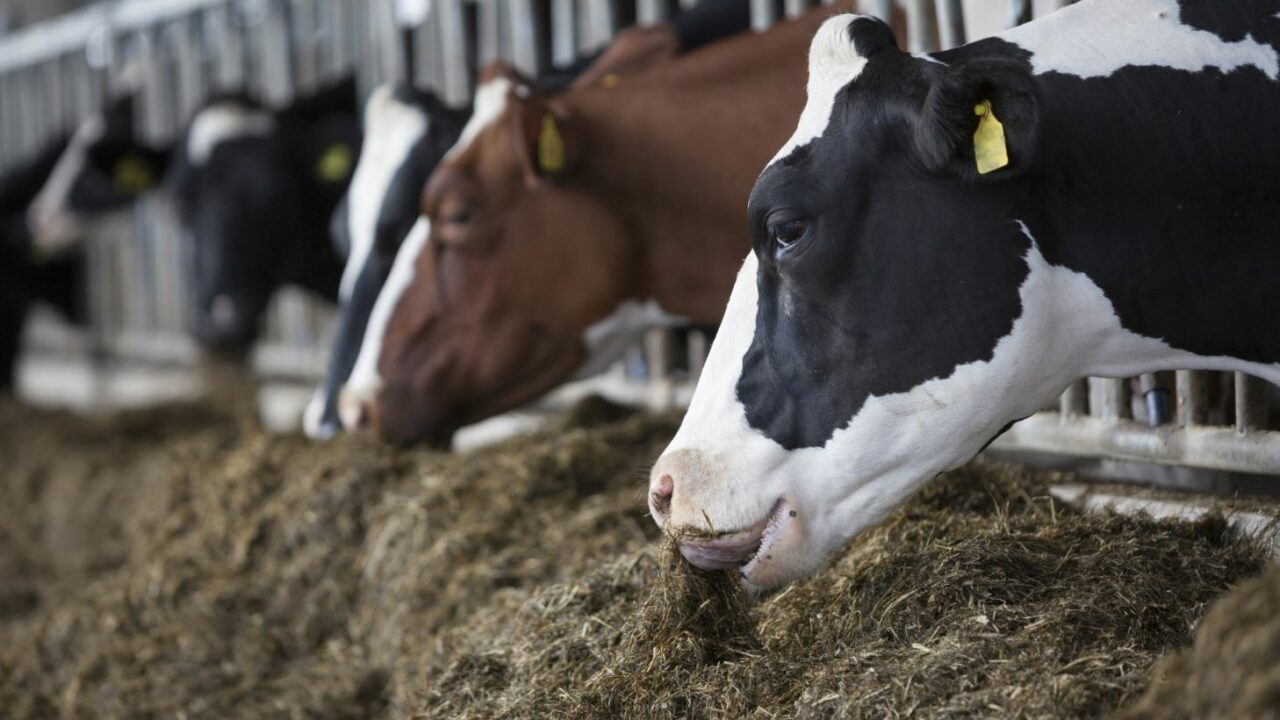When it comes to buffering rumen acidity, switching from sodium bicarbonate to Acid Buf – a slow-release rumen conditioner – will increase total milk solids production and overall feed efficiency. This is according to recent research conducted at University College Dublin (UCD).
Independently proven gains
In the latest UCD trial using Acid Buf, instead of sodium bicarbonate, milk solids (milk fat and protein) lifted by 4% – from 2.25kg/cow/day to 2.35kg/cow/day. Feed efficiency also increased by 8% (1.62 versus 1.50).
The findings of this study were presented at the American Dairy Science Association Annual Meeting in June 2017. The results are also backed up by two previous independent studies at the University of Georgia and Stellenbosch University.
Best value for money
The only rumen conditioner on the market proven time and time again in animal research trials around the world, Acid Buf is so effective that it only requires a dose of 80g/cow/day.
Dr. Derek McIlmoyle, AB Vista’ EMEA ruminant technical director, added: “Acid Buf isn’t just a rumen conditioner. The calcium and magnesium contained in Acid Buf is also highly bioavailable. Therefore, CalMag inclusions can be reduced to take account of this.
Combined with savings from the low inclusion rate, it makes Acid Buf easily the most cost-effective rumen conditioner currently available.
The result? Same intake, greater efficiency and more production.
The substantial acidosis threat
Countering sub-acute ruminal acidosis (SARA) is the main reason why most farms include Acid Buf in both winter and summer rations.
“In the past, it has been estimated that 22% of newly-calved cows in Europe experience issues with SARA.
“However, rumen fermentation can be significantly compromised even before acidosis becomes noticeable. That’s why rumen buffering is so important,” added McIlmoyle.
Understanding the differences between the various options available is also critical. Although both Acid Buf and sodium bicarbonate are capable of reducing the extent, rate and duration of rumen pH drop, there are significant disadvantages to using sodium bicarbonate.
McIlmoyle explained: “Not only is Acid Buf more efficient, but it appears that sodium bicarbonate lowers acidosis risk by increasing the rate of passage through the rumen.
So, effectively it’s reducing rumen acidity by simply limiting the availability of ration ingredients for fermentation.
“The inevitable consequence is that some of the nutritional value in the ration is lost and feed conversion efficiency suffers as a result.”
Reliable on-farm performance
For Andrew Reid, a Northern Irish dairy farmer, optimising rumen fermentation efficiency is an integral part of a feeding strategy. With this strategy, he has seen annual yields hit 10,000L/cow with milk fat at 4.11% and all on a system using grass as the primary forage.
Reid’s 200 Holstein Friesian cows are fed a year-round total mixed ration, based on a combination of grass silage, straw, soyabean meal, maize meal and soya hulls.
Rather than increase cow numbers, the aim is to maximise production by pushing for better yields. Improving fertility and keeping on top of health problems is also prioritised.
“The only way to keep yields this high and maintain butter fats is to make sure the rumen spends as much time as possible working as efficiently as possible.
“At this level of production, you simply can’t cut corners. Using Acid Buf rumen conditioner has been essential to keep the rumen environment optimised,” he said.
More information
For more information, contact the AB Vista Randalstown office at: 004428-94473478. Click here for more information





